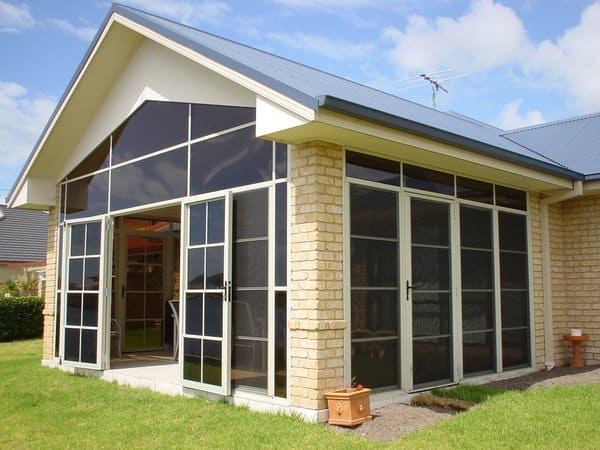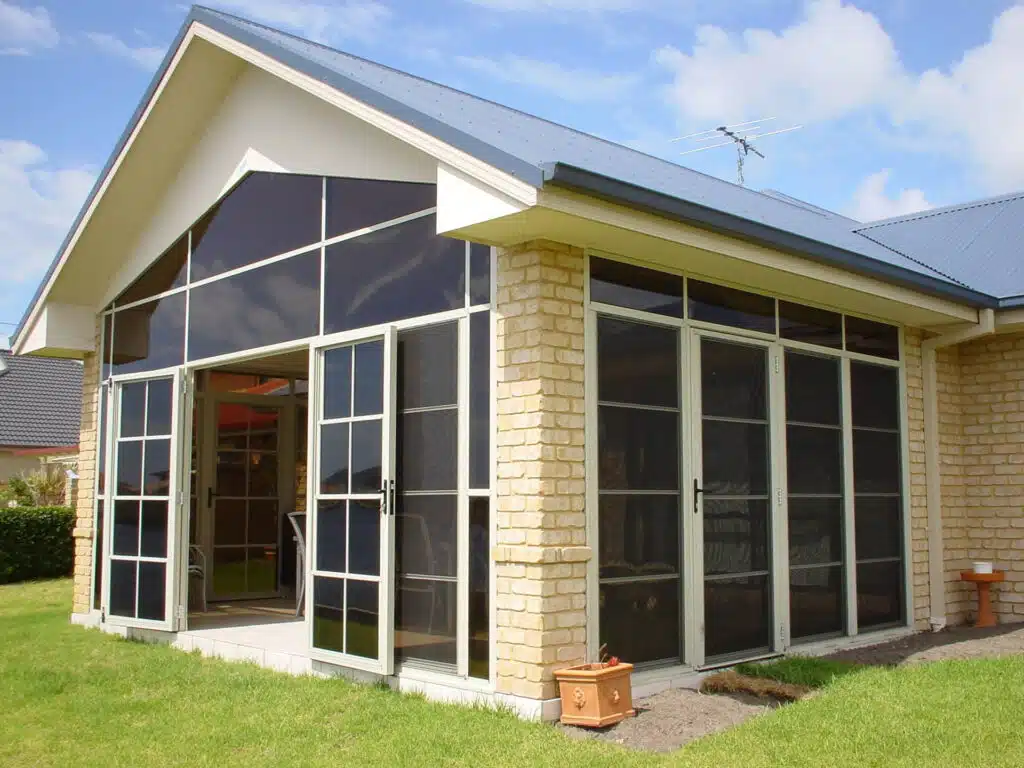By HV Aluminium
A well planned home extension can add considerable value to your home. With a hot property market in Newcastle and the Hunter, property owners are capitalising on the popularity of suburbs throughout the entire region. From a financial perspective, more living space can increase the property price and make it more attractive to potential buyers in the market. Plus, you’ll be giving your lifestyle a healthy boost by adding more room to enjoy with friends and family.
If you are considering a home extension, preparation and planning are key to managing costs and delivering the best result. Here are the 7 absolute essentials to keep in mind, so that you don’t get any nasty surprises or unnecessary delays throughout the home extension process.
1. Talk to your friends and neighbours
If you know people in the community or your social circles who have been through the home extension process, invite them over for a cup of tea! Hearing from the experiences others is one of the easiest ways to get a feel for what’s in store.
2. Weigh up your options and have a budget in mind
You will need to do a bit of research into the current property market. Imagine your ideal home extensions have been completed and compare what a similar home would fetch on the current market. Now compare this with what you have budgeted for your own extensions? Factor in the cost of selling your home, including stamp duty and this can help you decide whether selling and moving is the way to go, or whether a home extension is viable. Although this is a very rough guide, it can give you an indication of what to expect. It’s always a good idea to undertake some investment planning before you get started on the project.
3. Planning permits
The New South Wales government has strict policies on the type renovations and home extensions that require development applications. Low impact works and minor renovations may be classified as exempt, including:
- Balconies, decks, patios, pergolas, terraces and verandas
- Privacy screens
- Shade Structures
- Temporary structures
Depending on the scale of your home extension, you may need to submit a development application to ensure compliance with council standards. If you aren’t sure, it’s best to contact your local council and get more information.
4. Where are you going to extend?
Are you going to build up or out? This is a key consideration, and one of several factors which will ultimately influence your decision. To help you decide, spend some time thinking about the following questions and discuss them with your family:
- How will an extension affect any remaining outdoor space e.g. gardens, backyard, garage?
- How will natural light exposure affect the comfort of the planned extension? If you are considering adding a storey, what impact will this have on neighbours?
- Will your intended extension be feasible in the chosen space? Take measurements as a starting point to see if it will work
- Are your property boundaries clearly defined?
5. How long will my home addition take?
Surviving the home extension process without hassle really comes down to proper planning. Make sure a comprehensive, transparent project timeline is one of the first discussion points with your contractors and builders. If it’s a major renovation, having the project completed in stages so you can fit into other parts of the house can be an option.
6. Who is going to design the extension
Choosing the right team for the job is going to take a lot of stress out of the process down the track. Do your research on the specialist capabilities of each potential contractor or builder. Don’t be afraid to ask for samples of their projects, so you can see if the finished product matches up with your expectations.
Do you have a backup plan?
Knowing where to turn in unforeseen circumstances can provide peace of mind throughout the entire home extension process. Do you have friends or family you can stay with for a night or two if the house becomes a war zone? What’s the plan if the project falls behind schedule? Who can you contact if the finished product isn’t what you expected? It might be daunting, but running through some of the worst case scenarios can help you at least brainstorm a contingency plan. These 7 absolute essentials for planning your home extension will set you up for success, so make sure to be diligent!


